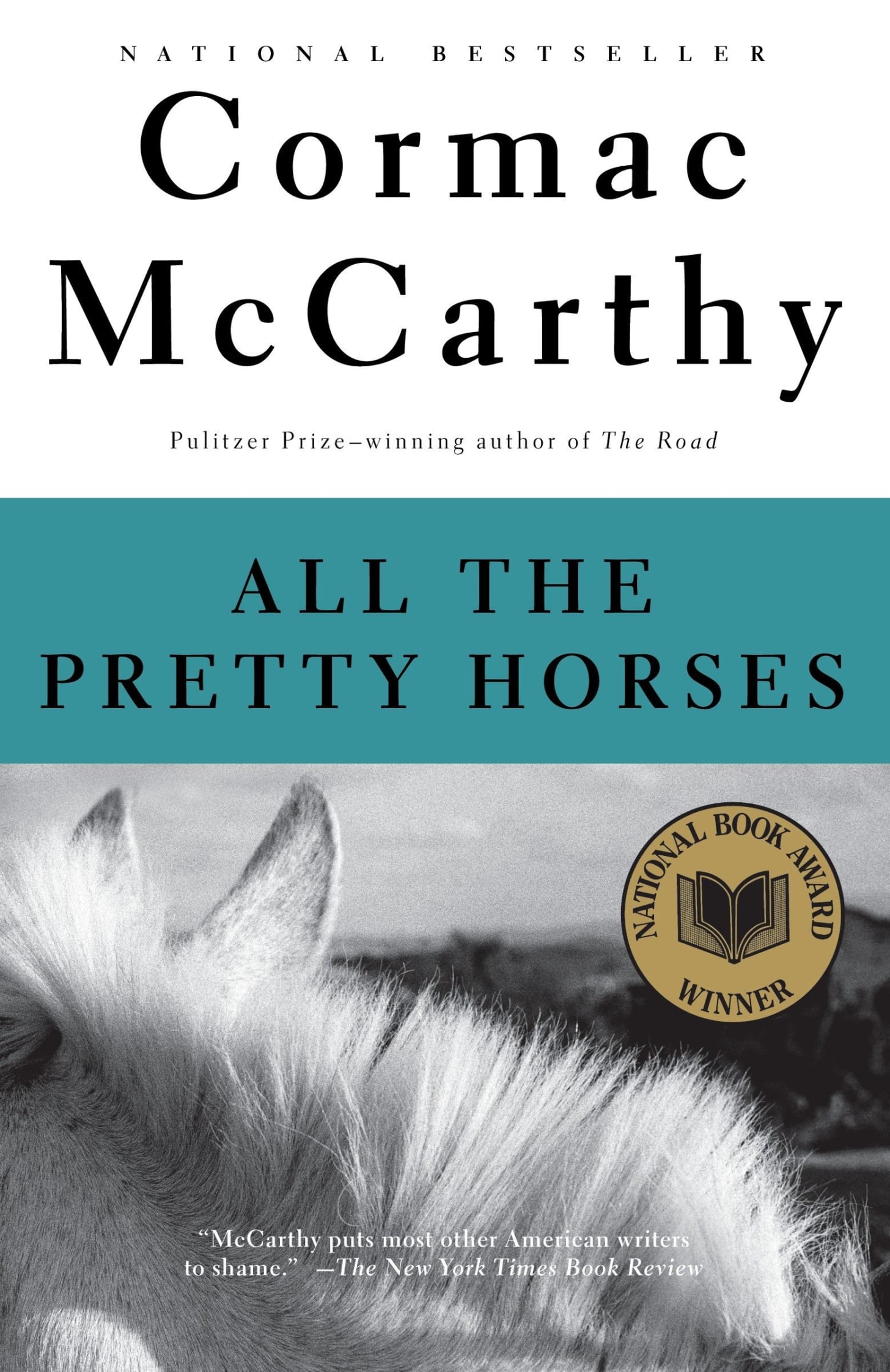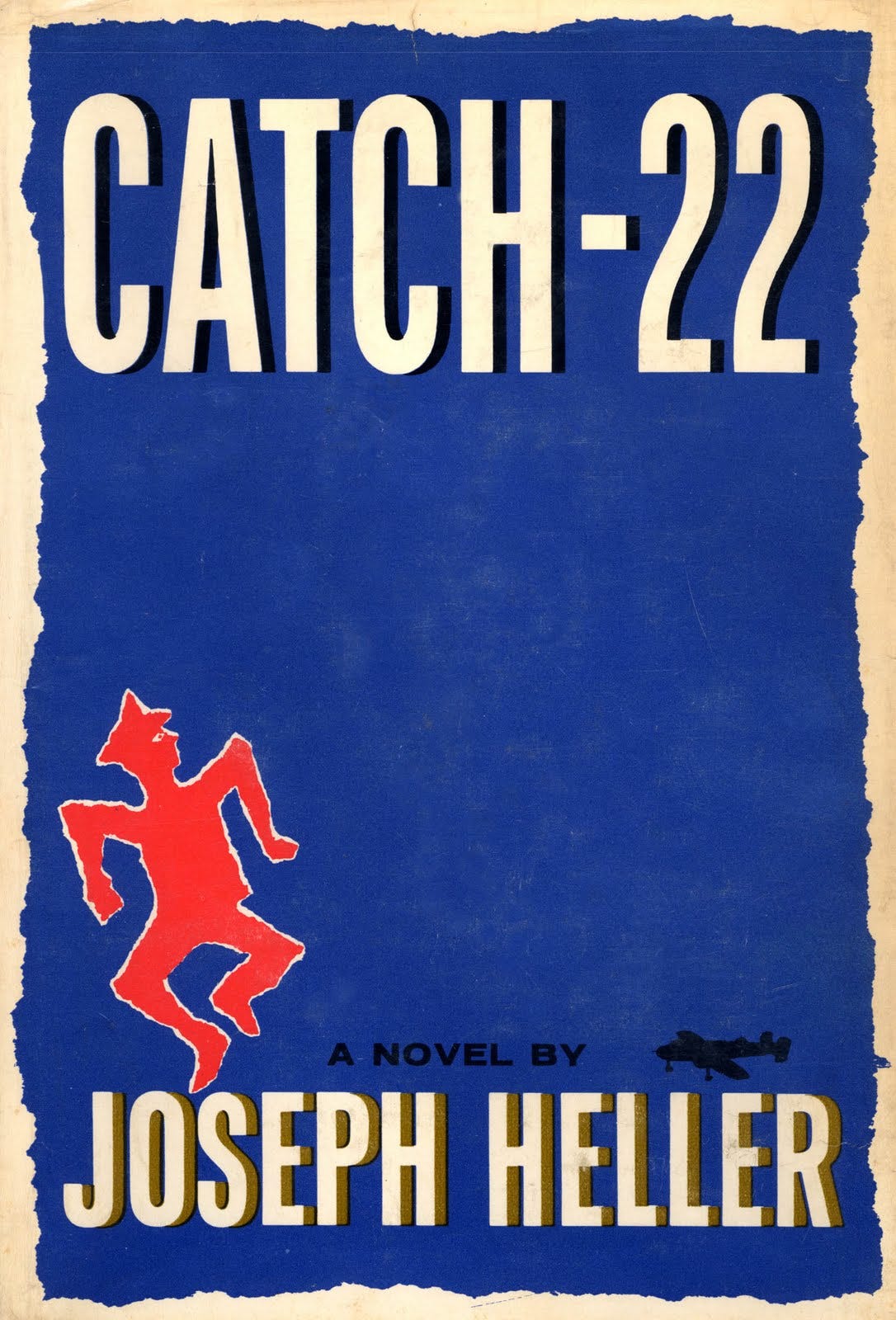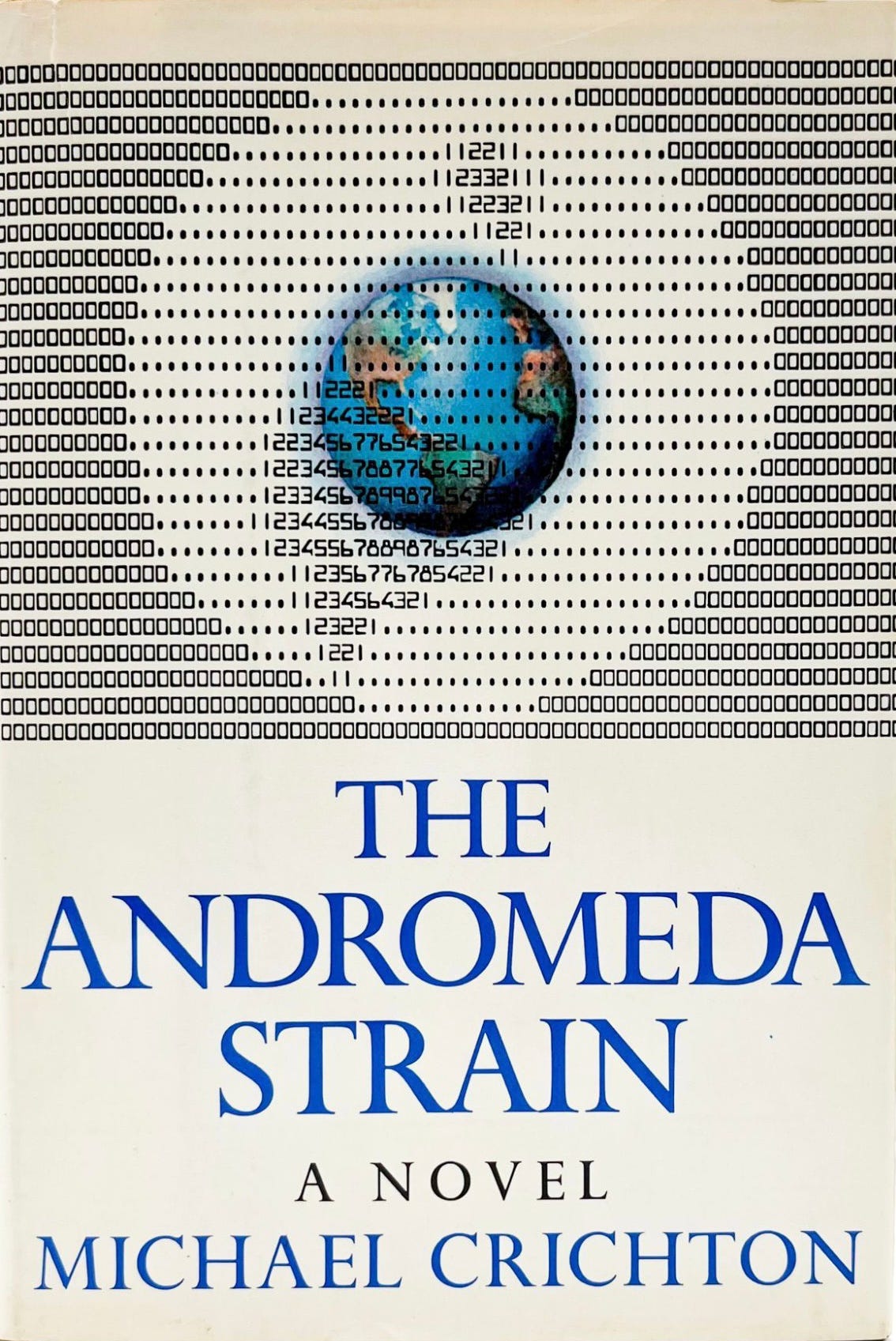3 Literary Deaths and the Ever-Evolving Book Business
On the Passing of Cormac McCarthy, Robert Gottlieb, and Richard Snyder
This month witnessed the last page turn on the lives of three publishing legends: a publisher, an author, and an editor. First, storied Simon & Schuster CEO Richard Snyder died June 6. Then, prizewinning novelist Cormac McCarthy died June 13. Finally, famed editor Robert Gottlieb died a day later, June 14. They were, respectively, 90, 89, and 92.
It’s intriguing this trio died within nearly a week of each other, since their lives collided in so many ways. Gottlieb, for instance, worked alongside Snyder at Simon & Schuster and pulled two stints at McCarthy’s second publisher, Alfred A. Knopf. But there were deeper currents that interlaced their lives.

Commercial Flop
McCarthy was famous for avoiding company with other writers. And why not? He didn’t owe them anything, at least not much. One could not, however, say the same about his editor and publisher, upon whose plodding patience and irrational hopes his later success greatly depended.
McCarthy, a college dropout, sent the typewritten manuscript of his debut novel to Random House because, as he said, “it was the only publisher I’d heard of.” The book landed on the desk of Albert Erskine, an editor whose pen had marked up the pages of William Faulkner, Robert Penn Warren, Ralph Ellison, James Michener, and Malcolm Lowry, among other luminaries.
Erskine saw promise, and Random House published The Orchard Keeper in 1965. Unfortunately, readers paid no attention. The book was a flop, as were all the books McCarthy published throughout the seventies and eighties: Outer Dark (1968), Child of God (1973), Suttree (1979), even a book now regarded as a highpoint in American literature, Blood Meridian (1985). Despite critical acceptance, none sold more than couple thousand copies upon release and all drifted out of print.
“I’ve been a full-time professional writer for 28 years,” McCarthy said in 1989, “and I’ve never received a royalty check. That, I’ll betcha, is a record.” Possibly, but probably not. Publishers have always lost money betting on books. As William Jovanovich once said of his own kind, “The publisher can at once be regarded as a scoundrel by his authors and an idealist by his bankers. . . .”
Early on McCarthy benefited from what could be deemed unromantically—and maybe even uncharitably—as a lax and unprofessional period in publishing. Most firms were family businesses or small partnerships operated by their owners. No one was in the business to lose money, but neither were most of them getting rich. Publishing was a hobby in which money changed hands, a cottage industry that operated like a respectable gambling habit.
In 1944, the head of Boston publisher Houghton Mifflin complained Time editors had filed a publishing story in the magazine’s business and financial pages. “They do not realize,” he protested in Publishers Weekly, “that there is nothing either businesslike or financial about publishing.”
But those days were slowly ebbing. Jovanovich represented the start of a new chapter, and his 1964 book, Now, Barabbas, recounts the midcentury challenges of professionalizing the trade.
The process took decades to complete. It would be wrong to assume publishing, as Jovanovich bemoaned, “consists of financiers whose job it is to make money and prevent editors from losing it.” But then there’s the fact Erskine stuck with McCarthy for two decades without ever recouping an advance.
Erskine retired in 1987 before McCarthy finally broke big, though he lived long enough to see his judgement validated in 1992 when All the Pretty Horses—published by Knopf—ran like Secretariat at the Preakness and secured McCarthy’s long-sought commercial success. Erskine died just a year later.
Editors and publishers could take their long bets in the sixties, seventies, and eighties—as they’d done in the decades prior—but the push for professionalization was closing the window in very years McCarthy relied upon it most. Few exemplified this push better than another of our three giants, Richard “Dick” Snyder.
Going Corporate
Born into the bookless home of a Brooklyn coat manufacturer, Snyder’s own long bet was publishing. After school and a stint in the military, he found his way into the marketing department at Doubleday in the late 1950s and quickly developed a facility for the intricacies and details of the trade.
“At Doubleday, I would work till 4, 5, 6 in the morning,” he said. “I was fascinated—reading reports, books, finally understanding something.” According to journalist Roger Rosenblatt,
Snyder may have been the only person at Doubleday who actually knew the exact number of books published, ordered, sold and returned. He climbed the pallets in a lower Manhattan warehouse that had 50-foot ceilings to count the books.
His command of the business elevated him, though only twenty-five, to assistant marketing director in 1958. But that same command of the business made him insufferable to his superiors. Armed with real information about what was working and what wasn’t, Snyder began recommending improvements, changes, updates. He was tireless; his bosses were not. He lasted only a couple years before they threw him out.
Safe to say Snyder had strong opinions. And they followed him to Simon & Schuster, where he landed in 1960, quickly making a name for himself in that organization as well. By the end of the decade he was appointed associate publisher and eventually made publisher. In the two decades he served either variously or concurrently as president, CEO, and chairman (1975–1994), Snyder scaled the company’s annual revenue by a multiple of fifty, from $40 million to over $2 billion.
He had, as Robert Gottlieb recalled, an “Ahab-like determination to see Simon & Schuster outgrow Random House,” McCarthy’s publisher during these years and Simon & Schuster’s primary competitor. He succeeded. By the nineties, Simon & Schuster was the biggest publishing company around.
How’d he do it? The Ahab comparison points us to Snyder’s single-mindedness, relentlessness, even his nastiness. Indeed, when reading his many obituaries it’s impossible to escape mention of his tirades and screeds, his imperialism, doggedness, intensity, and harshness.
He was forced out in 1994 because new ownership at Viacom loathed working with him. A year later, Rosenblatt asked Viacom’s CEO if he would reconsider. Would he still drop the axe if Snyder could ensure doubling the company’s revenue? The man’s only hedge were the two extra syllables required to turn yes into “Probably.”
All this, said Gottlieb, sounds like “material for a Greek tragedy—remember hubris?” But he also allowed that many at Simon & Schuster revered him. Reviewing the memoir of his friend and colleague Michael Korda Gottlieb mentioned how “this famously difficult man [Snyder] could command loyalty, respect and even affection.”
Snyder didn’t just climb the corporate ladder. He helped build it with his own two hands, making way for others to join him—though always a rung or more below him. “There’s a tendency to see only the dark side of Dick,” Korda told the New York Times,
but he was genuinely a visionary who did to some degree revolutionize publishing. He was quite a radical innovator and led the way for book publishing from a privately owned cottage industry into a real business in which it was possible for people to work and make a living.
Snyder, said Rosenblatt,
was the Little Napoleon of publishing. Part visionary, part accountant, he was the man the industry never wished to see, and whom it never could have survived without—at once despised and honored for wanting more.
His strategy for success? A combination of tough managerial efficiency, diversifying the staff, fully exploiting licensed rights and IP, acquiring competitors and complementary publishers, and changing the kind of books Simon & Schuster published to include textbooks—something Jovanovich also favored at his firm—and news-making, current-events and celebrity titles.

He didn’t kill the old romance of the game, but he complicated the rules and started watching the scoreboard and stats. He needed to.
New tax laws, as Rosenblatt recounted, changed the family-firm, cottage-industry nature of the business. “As the families of publishing were getting older, the new laws put great pressure on them,” he explained. “To hold on to their money, rather than see it eaten up by inheritance taxes, the families had to take their businesses public. Once that happened, the whole scope and definition of publishing began to change.”
Companies that could go public did. Others sold to larger outfits, such as Simon & Schuster. Some stayed independent. But the only way to compete amid the turmoil was to start running publishing houses like full-fledged enterprises with real attention to profits and losses and expanded sales, marketing, and publicity departments tasked with making a larger dent in the marketplace.
Snyder was born for that. “You cannot be a publisher any longer without also being a businessman,” he told the New York Times in 1984.
The retail side of publishing mirrored this fevered expansion. Never before had books been more extensively marketed and merchandised, and the rise of chain bookstores meant books could reach further than ever before. Those large stores and chains were also good, as Snyder pointed out, with feeding publishers regular sales data—another marker of the growing professionalism.
It was this revolution of the business model that allowed Cormac McCarthy’s second phase. “Mr. McCarthy’s career was made possible by a tectonic shift that was happening in the publishing industry as it moved from the boutique model of the early 20th century to an era of conglomeration,” explains Emory University professor and publishing historian Dan Sinykin. “His early career was sustained by an editor who stuck with him despite commercial struggles. His latter career was buoyed by the surge in marketing power ushered in by the conglomerate era.”
Sinykin’s observation takes nothing away from McCarthy’s talent or accomplishment. As with Snyder’s career, it only reveals the conditions under which that talent could best shine.
Middle Man
Robert Gottlieb, the last of our departed giants, stood somewhere between the others, part of the old world and part of the new.
He started at Simon & Schuster at the dawn of these transitioning years, beginning as an editorial assistant in 1955. Bookish from his youth and a voracious reader, Gottlieb understood the work like few others and possessed surprising acumen for the business. Within a decade he was appointed editor in chief. Three years later, in 1968, he jumped to Knopf as vice president and editor in chief. Five years after that he was named president—a position he held until 1987.
During those years he worked with seemingly everyone who mattered: Lauren Bacall, Ray Bradbury, John le Carré, Robert Caro, John Cheever, Michael Crichton, Len Deighton, Bob Dylan, John Lennon, Janet Malcolm, Toni Morrison, V. S. Naipaul, Sidney Poitier, Chaim Potok, Salman Rushdie, B.F. Skinner, Barbara Tuchman, and so many more.
He edited Joseph Heller’s dizzily plotted, madcap WWII novel, Catch-22 and even suggested the number twenty-two in the title. “Some of Bob’s suggestions for Catch-22 involved a lot of work,” Heller recalled. “There was a chapter that came on page two hundred or three hundred of the manuscript . . . and he said he liked this chapter, and it was a shame we didn’t get to it earlier. I agreed with him, and I cut about fifty or sixty pages from the opening just to get there more quickly.”
Heller’s experience was typical for how Gottlieb worked. He would read a manuscript all the way through to gather his impression of the book. Then he’d return with a pencil and work is way through a second time, this pass making notes and suggestions.
Sometimes those suggestions completely upended the book. He made Michael Crichton rewrite The Andromeda Strain—twice. “Before The Andromeda Strain,” Crichton said,
I didn’t really know the extent to which you could write a draft and not accept it but rather tear it all apart, move things around, rework them, and then put it all back together. I had never gone through that process in my previous writing, and Bob put me through it. . . . Even now, when Bob first calls me back about a manuscript, I panic. But I’ll tell you, I think every writer should have tattooed backwards on his forehead, like ambulance on ambulances, the words everybody needs an editor.
For all the fame of the people he helped and the level to which he raised their work, Gottlieb shied from attention. He thought an editor should live entirely behind the pages; the literary middleman of publishing should go unseen. “Of course, if anybody says nice things about me in print it’s pleasant,” he admitted to the Paris Review. “But the fact is, this glorification of editors . . . is not a wholesome thing. The editor’s relationship to a book should be an invisible one.”
Why? It’s intrusive. “The most famous case of editorial intervention in English literature has always bothered me,” he explained. After Charles Dickens finished Great Expectations, he sent the ending to his friend, Edward Bulwer-Lytton, to review. Unhappy with the sad close, Bulwer-Lytton sent back a revised, happier ending—which Dickens used!
“I don’t want to know that!” said Gottlieb, applying the same reservation to his own work.
As a critic, of course, as a literary historian, I’m interested, but as a reader, I find it very disconcerting. Nobody should know what I told Joe Heller and how grateful he is, if he is. It’s unkind to the reader and just out of place.
In 1987, Gottlieb jumped again, this time out of publishing and into magazines. Knopf’s owner also owned the New Yorker, and Gottlieb was tasked with running the show. He lasted five years before returning to Knopf, back to his authors. In both phases of his publishing career, Gottlieb thrived amid the professionalization of his trade because he was adept at the business and mindful of its foundation: excellent books and enthralled readers.
The years of expansion, mergers, and acquisitions displeased many. Critics complained about conglomeration and homogenization; the great leftist publisher André Schiffrin had, for instance, nothing good to say about Simon & Schuster. “It seems that in today’s publishing, it is only authors who despise themselves for selling out,” he said. “Publishers merely anticipate inevitable trends.”
Trends are, of course, bigger than individuals. And yet individuals contribute to those trends. Snyder, McCarthy, and Gottlieb each played a role in their own unique way.
Imagine an anteroom to the afterlife; what would these three talk about? My guess: Their extraordinary good fortune. And, though McCarthy would probably hold back, I bet Snyder and Gottlieb would eventually peel off to verify industry rumors. “Is that how you heard it?”
I’ve linked most of the sources from which drew, but here’s a quick rundown of the principal obituaries and other pieces I referred to. Snyder: obits in New York Times, Associated Press, Air Mail, and PW; 1984 New York Times profile; Rosenblatt’s 1995 profile. McCarthy: obits in New York Times and Knoxville News Sentinel and Sinykin’s essential examination of McCarthy’s publishing history amid wider trends. Gottlieb: obits in Washington Post, New York Times, and New Yorker; Paris Review interviews; NPR profile; his own review of Korda’s memoir. Background: Jovanovich’s Now, Barabbas (Harper, 1964) and Schiffrin’s The Business of Books (Verso, 2000).
Thanks for reading! If you enjoyed this post, please hit the ❤️ below and share it with your friends.
Not a subscriber? Take a moment and sign up. It’s free for now, and I’ll send you my top-fifteen quotes about books and reading. Thanks again!






A most enlightening and well-crafted piece - thank you, Joel!
Man! This is a stellar one. Loved reading it. I want more!